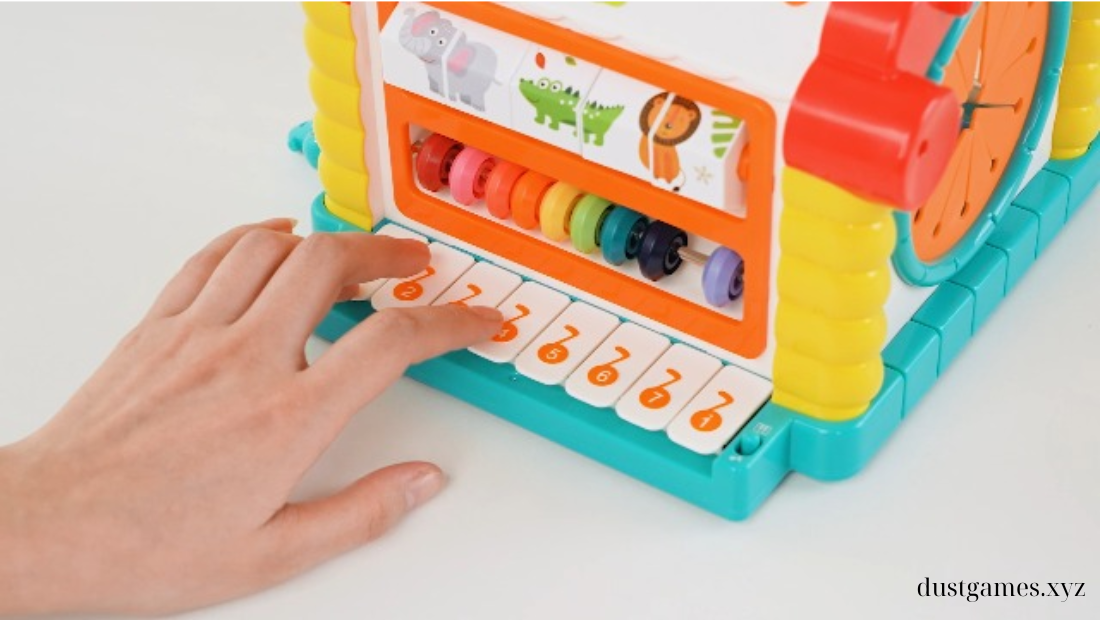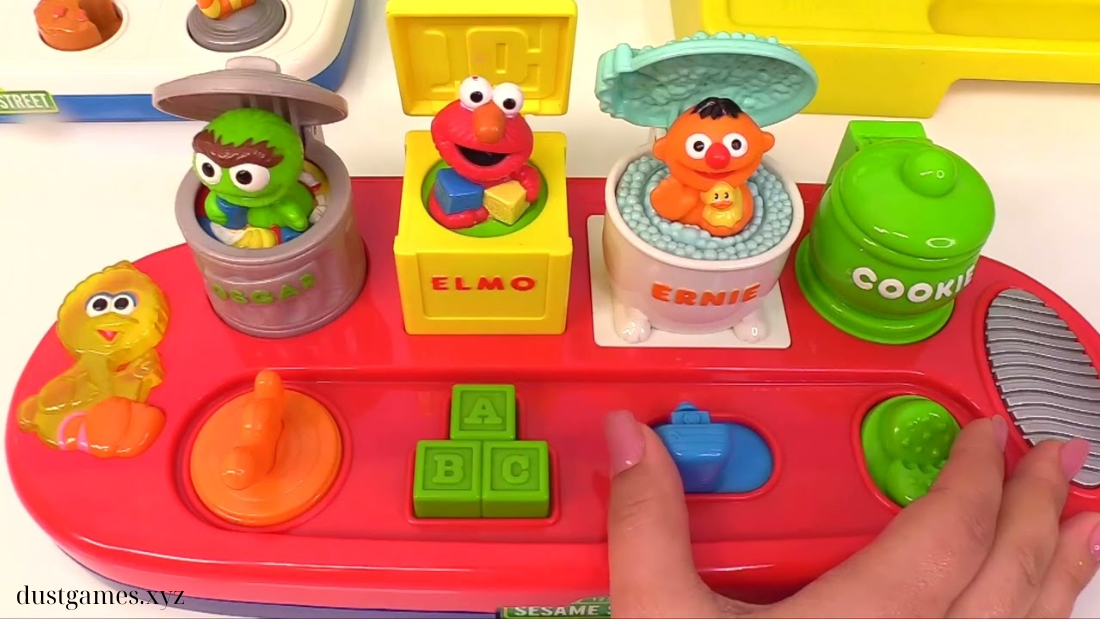Blog
Fun Meets Function: The Ultimate Collection of Educational Toys for Preschoolers\
When it comes to fostering a child’s development, educational toys are invaluable tools that combine learning and play. For preschoolers, who are in a critical stage of cognitive and social development, the right toys can make a significant difference. This article explores the ultimate collection of educational toys for preschoolers, focusing on how they can enhance learning while keeping playtime fun and engaging.
The Importance of Educational Toys for Preschoolers
Preschool years are a time of exploration, curiosity, and rapid growth. Educational toys serve multiple purposes in this developmental stage:
- Cognitive Development: Toys that stimulate thinking and problem-solving help enhance cognitive skills. Puzzles, memory games, and building sets encourage critical thinking and spatial awareness.
- Motor Skills: Toys that involve manipulation, such as stacking blocks or using art supplies, help refine fine motor skills. These activities are crucial for developing hand-eye coordination and dexterity.
- Social Skills: Many educational toys encourage cooperative play, fostering communication, sharing, and teamwork among preschoolers. Role-playing games and group activities teach important social skills.
- Creativity: Toys that allow for open-ended play, such as art materials and building sets, encourage creativity and self-expression. This fosters imaginative thinking, which is essential for problem-solving in later years.
- Emotional Development: Engaging in play helps preschoolers express their feelings and develop empathy as they interact with others.

Top Educational Toys for Preschoolers
1. Building Blocks
Building blocks are a classic educational toy that never goes out of style. They come in various materials, including wood, foam, and plastic, and offer endless possibilities for creativity.
- Benefits:
- Enhance fine motor skills as children stack and balance blocks.
- Encourage spatial awareness and problem-solving as they figure out how to construct stable structures.
- Foster imaginative play as kids create their own worlds.
2. Puzzles
Puzzles are fantastic for developing cognitive skills. They come in different difficulty levels and themes, including animals, numbers, and shapes.
- Benefits:
- Improve problem-solving skills and critical thinking.
- Promote hand-eye coordination as children manipulate puzzle pieces.
- Help with shape recognition and memory.
3. Art Supplies
Art supplies such as crayons, markers, and washable paints allow preschoolers to express their creativity. Consider getting art kits that include various materials and tools.
- Benefits:
- Encourage self-expression and creativity.
- Develop fine motor skills through drawing and painting.
- Foster an understanding of colors, shapes, and textures.
4. Educational Board Games
Board games designed for preschoolers can be both fun and educational. Look for games that promote counting, matching, or language skills.
- Benefits:
- Teach rules and turn-taking, enhancing social skills.
- Improve cognitive skills like memory and strategic thinking.
- Encourage family bonding during playtime.
5. STEM Toys
STEM (Science, Technology, Engineering, and Mathematics) toys introduce preschoolers to foundational concepts in these fields. Options include simple robotics kits, engineering sets, and science experiment kits.
- Benefits:
- Stimulate interest in science and technology from a young age.
- Encourage problem-solving and critical thinking skills.
- Foster creativity as children design and build their own projects.
6. Role-Playing Toys
Role-playing toys, such as play kitchens, doctor kits, or dress-up costumes, provide opportunities for imaginative play. These toys allow preschoolers to mimic adult activities, which can be both fun and educational.
- Benefits:
- Enhance social skills as children play together and negotiate roles.
- Promote language development through conversation and storytelling.
- Foster empathy and understanding of different roles in society.
7. Musical Instruments
Simple musical instruments like xylophones, drums, and tambourines can introduce preschoolers to the world of music and rhythm.
- Benefits:
- Develop auditory skills and appreciation for music.
- Enhance fine motor skills through playing instruments.
- Encourage self-expression and creativity.
8. Interactive Learning Toys
Toys that incorporate technology, such as tablets designed for kids or interactive learning robots, can provide an engaging way for preschoolers to learn.
- Benefits:
- Offer interactive lessons in numbers, letters, and basic math.
- Encourage independent learning and exploration.
- Make learning fun with games and quizzes.
9. Nature Exploration Kits
Nature exploration kits, which may include binoculars, magnifying glasses, and bug catchers, encourage outdoor learning and exploration.
- Benefits:
- Foster a love for nature and the environment.
- Encourage curiosity and scientific inquiry.
- Promote physical activity and outdoor play.
10. Storybooks
While not a traditional toy, storybooks play a crucial role in preschool education. Look for interactive books that engage children with sounds, textures, or pop-up features.
- Benefits:
- Promote language development and vocabulary expansion.
- Encourage a love for reading and storytelling.
- Foster imagination as children visualize stories.
Tips for Choosing Educational Toys for Preschoolers
When selecting educational toys for preschoolers, consider the following tips:
- Age Appropriateness: Always check the recommended age range to ensure the toy matches your child’s developmental stage. Toys that are too advanced can lead to frustration, while those that are too simple may not hold their interest.
- Safety First: Choose toys made from non-toxic materials and free from small parts that could pose choking hazards. Look for certifications from safety organizations.
- Promote Open-Ended Play: Select toys that encourage creativity and imagination rather than those with fixed outcomes. Open-ended toys allow children to explore various play scenarios.
- Encourage Social Interaction: Look for toys that promote cooperative play. Toys designed for multiple players can enhance social skills and teamwork.
- Durability: Choose high-quality toys that can withstand the wear and tear of preschool play. Durable toys provide value and longevity, ensuring they can be passed down to younger siblings.
Conclusion
Educational toys for preschoolers are an essential part of their development, combining fun and learning in a way that promotes creativity, problem-solving, and social skills. From building blocks and puzzles to interactive learning toys and nature exploration kits, there is a wide array of options to choose from. By selecting the right educational toys, parents can provide their preschoolers with the tools they need to thrive in their formative years. Investing in these toys not only enriches playtime but also lays the foundation for lifelong learning and exploration.

